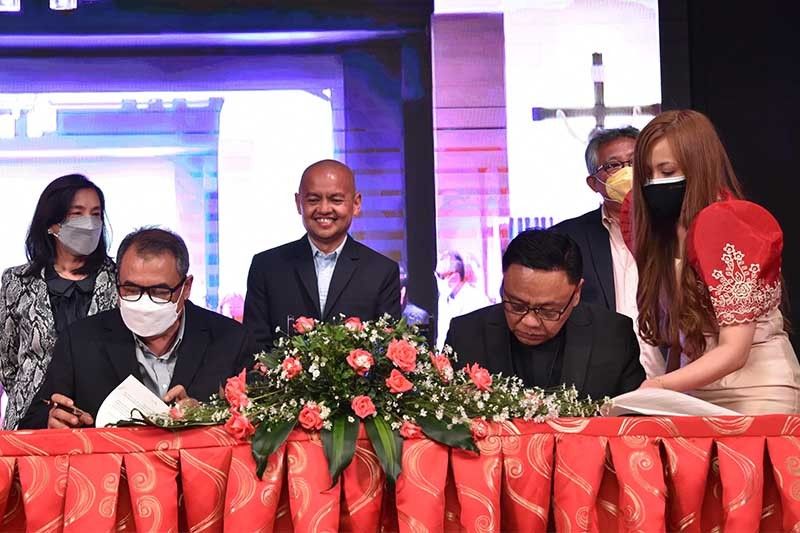At least 24 local testing centers approved for 2020-21 Bar exams

MANILA, Philippines — The Supreme Court inked agreements with eight more local testing sites to accommodate takers in the coming Bar exams, the first to be held digitally and across the country.
Associate Justice Marvic Leonen, 2020/21 Bar Chairpersons, issued Bar Bulletin 23 on Wednesday listing the 24 local testing centers approved thus far, with four more schools under consideration.
“Four other local testing centers—there in Metro Manila and one in Central Luzon—are still being considered. Whether they have been approved as local testing centers will be announced in a later bar bulletin,” Leonen said.
The 24 local testing centers approved are the following:
National Capital Region
- Ateneo de Manila University Law School (maximum 269 slots)
- Manila Adventist College (maximum 450 slots)
- University of Makati (maximum 1,000 slots)
- Far Eastern University (maximum 600 slots)
- University of Santo Tomas (maximum 500 slots)
Cordillera Administrative Region
- St. Louis University School of Law in Baguio City (maximum 1,035 slots)
Ilocos Region
- St. Louis College in La Union (maximum 1,280 slots)
Cagayan Valley
- Cagayan State University College of Law in Cagayan (maximum 421 slots)
- St. Mary’s University College of Law in Nueva Vizcaya (maximum 259 slots)
Calabarzon
- De La Salle University – Lipa in Batangas (maximum 1,125 slots)
Mimaropa
- City College of Calapan in Oriental Mindoro (maximum 200 slots)
Bicol Region
- University of Nueva Caceres in Camarines Sur (maximum 1,000 slots)
Western Visayas
- Central Philippine University in Iloilo (maximum 475 slots)
- University of St. La Salle in Negros Occidental (maximum 1,340 slots)
Central Visayas
- University of San Jose Recoletos in Cebu City (maximum 600 slots)
- University of Cebu School of Law in Cebu City (maximum 1,000 slots)
- University of San Carlos School of Law and Governance (maximum 200 slots)
- Silliman University College of Law (maximum 1,000 slots)
Eastern Visayas
- Dr. V. Orestes Romualdes Educational Foundation in Leyte (maximum 400 slots)
Zamboanga Peninsula
- Ateneo de Zamboanga University in Zamboanga del Sur (maximum 365 slots)
Northern Mindanao
- Xavier University – Ateneo de Cagayan College of Law in Misamis Oriental (maximum 240 slots)
- Mindanao State University – Iligan Institute of Technology in Lanao del Norte (maximum 250 slots)
Davao Region
- Ateneo de Davao University in Davao City (maximum 800 slots)
SOCCSKSARGEN
- Mindanao State University in General Santos City (maximum 204 slots)
Choosing local testing center, payment of Bar fees
Bar applicants can select their preferred local testing center through the Bar PLUS (Personal Login Unified System) — the online portal launched last July — only after the SC en banc approved their application.
But Leonen stressed that “venue-matching will not be on a first-come, first-served basis” but will instead prioritize applicants from remote areas to make the Bar more inclusive.
“Locations within the Philippines will be ranked from the least to the most remote, and the Bar PLUS will first process the choices of the applicants from the most remote locations,” he added.
Leonen also advised applicants to choose the testing center closest to where they live as this will also free up slots in centers closest to those with the least resources.
In a separate statement, the SC Public Information Office announced that Bar applicants can now pay the application fee online through Landbank Link.Biz portal and the Judiciary ePayment Solutions.
Launched on August 4, the Landbank Link.Biz portal offers the following payment options:
- Landbank/OFBank ATM Accounts
- BancNet member-bank ATM/Debit Accounts
- Cash Paument Options via Partner Collection Outlets
- PCHC PayGate member-banks
Payment through the Judiciary ePayment System, powered by Union Bank Pay, can be made through:
- Union Bank Online Banking Services
- PayGate participating banks
- Instapay participating banks
- Pesonet participating banks
The SC PIO said Bar applicants may also soon pay using their Visa and Mastercard debit cards and credit cards.
- Latest
- Trending


































